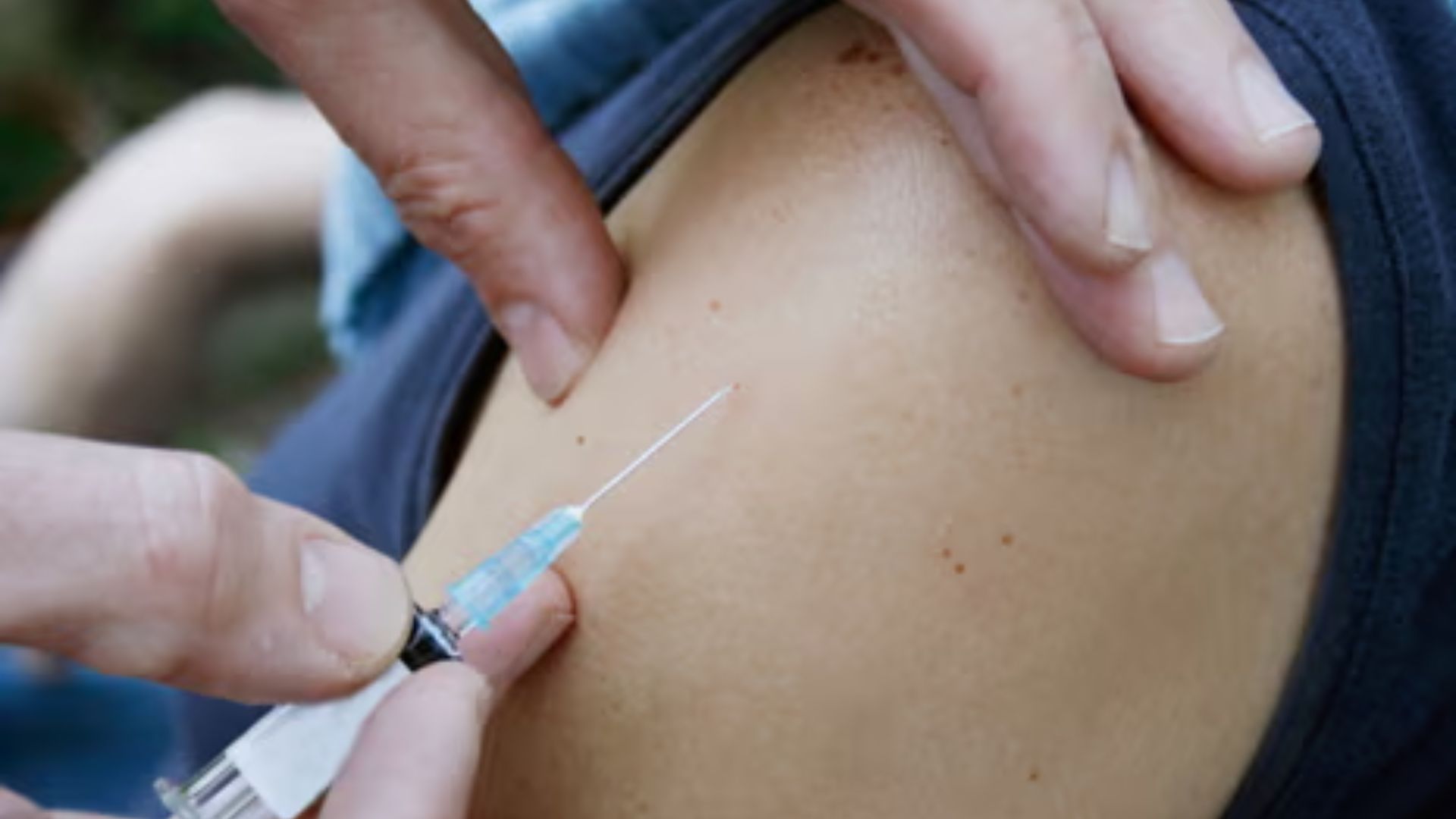As world leaders gather in New York to address the escalating crisis of superbugs, children in Pakistan find themselves at the forefront of a growing health emergency.
From his sickbed, eight-year-old Ukasha watched his siblings play outside. Despite feeling a heavy ache in his head and body, he had been suffering from typhoid fever for an entire month—an illness that should typically resolve within days. At its worst, typhoid can be fatal, and Ukasha’s family grew increasingly anxious, even moving his bed outdoors to get fresh air and sunlight. Thankfully, he was finally able to sit up, smile at the view, and eat his favorite food—eggs.
Twelve-year-old AbuZar, a classmate of Ukasha, also spent months bedridden with typhoid. He recalls waking up drenched in sweat and burning with fever during the peak of his illness. Children throughout their village, located on the outskirts of Peshawar, have been falling ill.
Dr. Maria Neira of the World Health Organization emphasized, “There is no reason we should have typhoid fever today if we have proper access to safe water and sanitation.” Typhoid, or enteric fever, is caused by consuming contaminated food or water. If untreated, it can kill one in five victims, but a simple course of antibiotics usually ensures recovery within days.
However, the antibiotics that traditionally treat typhoid are now failing. The bacteria responsible, Salmonella typhi, have developed resistance to many of the medications designed to eliminate them. This issue is not isolated; antibiotic resistance is a global phenomenon.
Ukasha’s father initially took him to Hayatabad Medical Complex, a crowded hospital in Peshawar. With beds filled to capacity—often accommodating four or five patients each—Ukasha’s father opted for home treatment after a diagnosis of contagious typhoid.
Clinical pharmacist Jehan Zeb Khan noted, “Typhoid was once treatable with a simple course of pills, but now it often results in hospitalization.” Ukasha’s illness stemmed from extensively drug-resistant (XDR) typhoid, a strain of “superbug” that emerged in Pakistan in 2016. XDR-typhoid is resistant to nearly all antibiotics used for treatment, leading to limited options and higher death rates.
Globally, approximately 9 million people contract typhoid annually, with the vast majority infected by drug-resistant strains. Pakistan has the highest rates in South Asia, with over 15,000 reported cases of XDR-typhoid, although many outbreaks remain unrecorded.
The risk of typhoid increases in communities lacking safe water and sanitation, with a poorly maintained sewage system posing significant contamination risks. In Pakistan, about 80% of diseases are believed to be linked to contaminated water.
Dr. Neira stated, “Access to safe water is a fundamental public health right that should not be denied to anyone.” Ukasha’s father suspected that a contaminated water tank at the boys’ school was responsible for the outbreak in their village. However, the school reported no such issues.
Neira added, “Drug-resistant typhoid poses a unique challenge. It is preventable and closely tied to poverty and the lack of access to water and sanitation.” While Pakistan has vaccinated over 30 million children against typhoid since 2019, efforts have largely concentrated in the southern regions where XDR-typhoid first appeared. The infection has since spread northward, affecting a population of over 100 million children.
Laboratory testing was critical to Ukasha’s recovery, allowing doctors to identify the specific strain of infection, which was treatable with only three antibiotics. The variant Ukasha had was resistant to all other commonly prescribed medications. He required meropenem, a “last-resort” antibiotic reserved for severe cases, necessitating 22 injections at significant financial strain on the family.
The rise of extensively drug-resistant typhoid can be attributed to the bacteria’s ability to adapt and develop resistance to antibiotics. The more exposure to these drugs, the greater the likelihood of resistance. Overuse of antibiotics is a primary factor contributing to this crisis. Global antibiotic consumption surged nearly 50% between 2000 and 2018, with significant increases in South Asian countries like Pakistan.
Inadequate access to testing complicates diagnosis, as typhoid symptoms can mimic those of malaria, dengue, and COVID-19—diseases not treatable with antibiotics. When proper testing isn’t available, doctors may prescribe antibiotics as a precaution, especially in areas with limited healthcare access.
Rapid tests for typhoid can produce false positives, leading to overdiagnosis and unnecessary antibiotic prescriptions. Some experts in Pakistan have criticized these rapid tests for driving up cases of drug-resistant typhoid, even as health authorities have banned the Typhidot and Widal tests, which remain widely accessible.
AbuZar received azithromycin, one of the few remaining effective antibiotics against XDR-typhoid. However, doctors are now encountering strains that are no longer responsive to it.
Superbugs do not respect borders, and cases of XDR-typhoid have been identified in 16 other countries, including India, China, Qatar, the UK, and the US. The US Centers for Disease Control has issued warnings to travelers to Pakistan about the superbug.
As world leaders convene at the UN to discuss drug-resistant infections and negotiate a political declaration, health professionals caution that “XDR-typhoid is the final warning sign. If we reach a point where superbugs are unresponsive to any medications, we could see a resurgence of typhoid as a deadly disease.”
Following their treatment, both Ukasha and AbuZar felt well enough to return to school, only to experience fevers again within days.
This article was produced in collaboration with the Bureau of Investigative Journalism, which, along with the Bill and Melinda Gates Foundation, has contributed to the typhoid vaccination program referenced in the piece.














